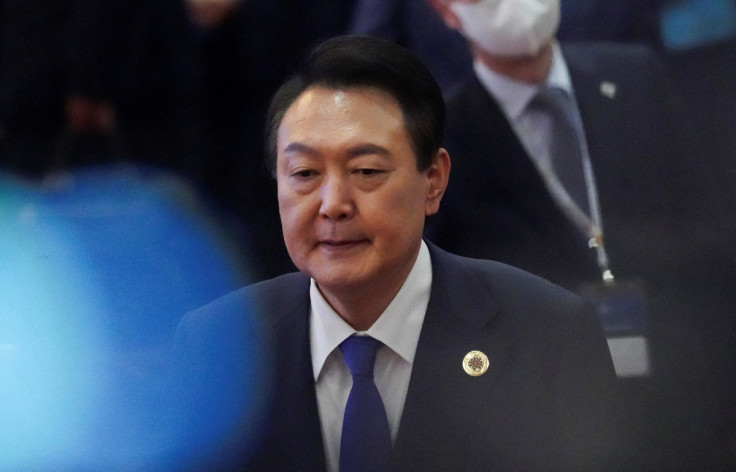South Korea's President Yoon Warns Of Crackdown On Striking Truckers

South Korean President Yoon Suk-yeol warned that the government might step in to break up a nationwide strike by truckers, calling it illegal and unacceptable to take the national supply chain "hostage" during an economic crisis.
Thousands of unionised truckers kicked off their second major strike in less than six months on Thursday, and it is already showing signs of disrupting multiple industries in the world's 10th-largest economy.
"The public will not tolerate taking the logistics system hostage in the face of a national crisis," Yoon said in a Facebook message late on Thursday, after saying exports were key to overcoming economic instability and financial market volatility.
"If the irresponsible denial of transport continues, the government will have no choice but to review a number of measures, including a work start order."
According to South Korean law, during a serious disruption to transportation the government may issue such an order to force transport workers back to their jobs. Failure to comply is punishable by up to three years of jail, or a fine of up to 30 million won ($22,550).
If the government takes this route, it would be the first time in South Korean history such a order is issued.
Transport Minister Won Hee-ryong told reporters on Thursday that the ministry has begun groundwork for issuing the order.
The head of the Cargo Truckers Solidarity Union (CTSU), Lee Bong-ju, said the truckers had no choice but to strike after the government stalled negotiations and have not sought dialogue since.
"The Yoon Suk-yeol government is threatening a hard-line response without any efforts to stop the strike," Lee told reporters on Thursday.
For the first day of the strike, the Korea International Trade Association (KITA) said it received 19 reports of cases of disrupted logistics. These included inability to bring in raw materials, higher logistics costs and delivery delays leading to penalties and trade with overseas buyers being scrapped.
In one instance, raw materials for a chemical company were delivered under police protection after the transport vehicle was blocked by striking truckers from entering a factory, KITA said.
The cement industry sustained revenue loss of an estimated 19 billion won ($14.26 million) on Thursday, lobby group Korea Cement Association said, after shipments slumped to less than 10,000 tonnes due to the strike. This compares with South Korea's 200,000 tonnes of cement demand in the peak season between September and early December.
The union estimated about 25,000 people were joining the strike, out of about 420,000 total transport workers in South Korea. The transport ministry said about 8,000 people were camped out on Thursday at key transport points to protest overnight.
($1 = 1,332.4700 won)
© Copyright Thomson Reuters 2024. All rights reserved.





















